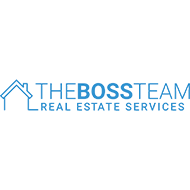If you’re considering selling your home, you’re probably wondering how much it’s going to cost. Selling a house involves more than just putting a “For Sale” sign in your yard. There are various expenses associated with the process, and the final cost depends on several factors. These include the offer you accept, how many repairs you undertake, whether you contribute to your buyer’s closing costs, and more. Understanding these costs will help you plan ahead and ensure you’re prepared for a smooth transaction.
The good news is that most homeowners today have built up significant equity in their homes. This means when they sell, they’re in a good position to make considerable gains. That could include recouping selling costs and possibly having enough equity leftover for your next home purchase.
In this article, we’ll break down some of the key costs associated with selling a home so you can get a clearer picture of what to expect. From closing costs and commissions to inspections, repairs, and staging, we’ll explain what each entails and where you might be able to save.
Closing Costs and Commissions
One of the most significant expenses when selling a home is the closing costs, which are the fees you’ll pay at the final stage of the sale when ownership of the home is officially transferred to the buyer. These costs typically range from 2% to 4% of the sale price, and they include a variety of fees like title insurance, recording fees, and transfer taxes.
According to U.S. News Real Estate, for the national median home sale price in 2023, closing costs for sellers range from $7,740 to $15,480. In addition to these fees, you may also need to cover the buyer’s closing costs as part of the negotiated agreement, especially if the buyer requests it as a concession.
Additionally, agent commissions are a significant factor in the overall selling cost. In most real estate transactions, the seller pays the commission for both their agent and the buyer’s agent. The typical agent commission is around 5% to 6% of the sale price, but this can vary depending on your location and the specific agreement you have with your agent.
While taxes, escrow fees, and commissions can add up, it’s important to remember that if you’ve been making monthly mortgage payments that include escrow for property taxes or homeowners insurance, you may receive some credit back at closing. This can help offset some of these selling costs.
Pre-Listing Inspection and Repairs
A pre-listing inspection is an optional expense but one that could save you money and headaches down the road. Getting a pre-listing inspection allows you to identify potential problems that might come up during the buyer’s inspection. This can give you the opportunity to address any issues before they become negotiation points later in the transaction.
For example, if the buyer’s inspection reveals major repair needs, the buyer might ask you to cover the cost of repairs or lower the sale price. By taking care of these repairs ahead of time, you can avoid last-minute price concessions and help ensure the sale process moves smoothly.
While a pre-listing inspection isn’t always necessary, it can be particularly useful for older homes or homes that have had few updates. The cost of an inspection typically ranges from $300 to $500, depending on the size and condition of your home.
As for repairs, the costs can vary widely. Some sellers opt to make only minor cosmetic improvements, such as fresh paint or new light fixtures, while others may need to address larger issues like roof repairs or plumbing fixes. Your real estate agent can guide you on which repairs are most likely to deliver a solid return on investment and which can be left for the buyer to handle.
Home Staging
When you’re competing in a busy real estate market, home staging can be an effective way to make your home stand out from the competition. Staging involves arranging furniture and decor to highlight the home’s best features and create a welcoming, appealing space for potential buyers.
The cost of staging can vary significantly depending on the extent of the work and whether you need to rent furniture. According to Bankrate, home sellers typically spend between $782 and $2,817 on staging costs, although the price can fluctuate depending on your specific needs. If your home is vacant, staging may involve renting entire room sets, whereas a furnished home may only need minor adjustments like adding artwork or rearranging furniture to optimize space and flow.
Virtual staging is also becoming more popular. In this process, photos of your home are edited to include virtual furniture and decor, giving buyers a sense of how the space could look. Virtual staging is generally more affordable than traditional staging and is an option to consider if you want to keep costs down.
If you’re trying to minimize staging costs, your agent can provide guidance on what changes will have the most impact. They might suggest removing certain personal items, decluttering, or rearranging furniture to make rooms feel more open and spacious.
The Role of a Real Estate Agent
It might be tempting to cut costs by skipping certain steps, such as staging or a pre-listing inspection, but one area where you shouldn’t skimp is hiring a professional real estate agent. An experienced agent is essential to a successful home sale, and their expertise will more than likely pay off in the end.
A skilled real estate agent provides valuable advice on every aspect of selling your home, from determining an appropriate listing price to advising you on necessary repairs or cosmetic updates. They’ll help you understand current market trends and offer customized marketing strategies to attract the right buyers.
In addition to these services, agents also handle the logistics of the sale, including scheduling showings, managing offers, and negotiating on your behalf. A good agent will work hard to make sure you get the best possible price for your home, which can offset the cost of their commission.
Furthermore, a well-connected agent can help you avoid the costs associated with hiring third-party services. For instance, instead of paying for an independent stager, your agent may offer staging advice for free. They can also recommend trusted contractors for any necessary repairs, ensuring you don’t overpay for services.
How to Save on Selling Costs
While selling a home does come with certain unavoidable costs, there are a few ways to save money along the way. For starters, as mentioned earlier, you can skip optional expenses like staging and a pre-listing inspection if they’re not necessary in your market.
Another option to consider is negotiating the agent commission. While many agents charge a standard 5% to 6% commission, this is not set in stone. If your home is in high demand or likely to sell quickly, some agents may be willing to negotiate a lower commission.
You can also consider selling your home “as-is,” which means you won’t make any repairs or updates before the sale. This can be particularly appealing to buyers looking for a fixer-upper, and it can save you money on repairs and staging. However, be aware that selling as-is may result in a lower sale price, so it’s important to weigh the pros and cons carefully.
Another way to cut down on costs is by choosing the right time to sell. The real estate market fluctuates throughout the year, and selling in a seller’s market—when demand is high and inventory is low—can result in a quicker sale and potentially higher offers, which may offset some of your closing costs and commissions.
Conclusion
Selling a home is a major financial transaction, and it’s important to understand the costs involved so you can plan accordingly. From closing costs and commissions to repairs, inspections, and staging, there are several expenses to consider. However, with careful planning and the right guidance, you can minimize these costs and maximize your return.
One of the most important steps you can take to ensure a smooth and successful sale is to work with an experienced real estate agent. Their expertise will help you navigate the process, avoid unnecessary expenses, and ultimately get the best price for your home.
If you’re thinking about selling, reach out to a local agent to get a personalized breakdown of what you can expect. They’ll provide tailored advice and help you understand the full scope of costs involved in selling your home. By partnering with the right professional, you can turn the sale of your house into a profitable and rewarding experience.
Follow Hashtags: #LocalSocialPro

 Lauren Labossiere
Lauren Labossiere 













